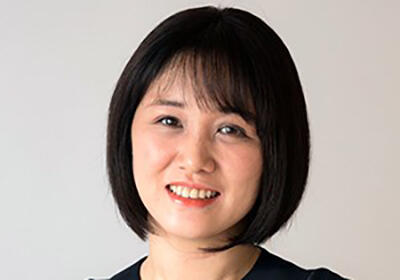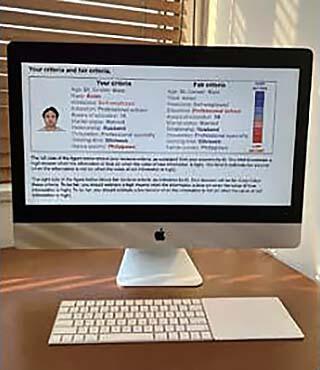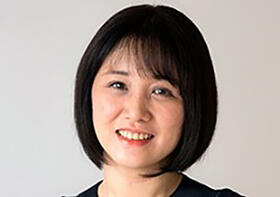
Associate Professor, University of Tsukuba, Faculty of Engineering, Information and Systems
Q1. What kind of things were you interested in?
A1. I've been interested in programming since elementary school, and in junior high school I was obsessed with 2channel*
My father was an engineer, so from an early age I grew up with computers in the house. I've been interested in programming since I was in elementary school, and I was the kind of child who would make and play games by myself while researching in the library. The internet was starting to spread when I became a junior high school student, and I became more and more immersed in computers, and I was obsessed with 2channel in particular, where it was possible to easily communicate anonymously with strangers.
In the real world, cognitive distortions tend to occur in which people are easily influenced by what others in the social hierarchy say, but this bias is more easily eliminated in an anonymous environment. But, even on the internet, people are often guided by the majority opinion. This phenomenon led me to become interested in cognitive bias, and I began to study it as a research subject. I believe that it will be possible for people to make unbiased judgements if machine learning is actively involved in the decision-making process, and I am continuing to approach this idea from a variety of angles.
Q2. How can cognitive distortions be corrected?
A2. Use your imagination around others, and don't judge them on the spot
Cognitive distortions are a phenomenon that can occur in anyone. For unbiased judgements, it is important to have diverse ways of thinking that are not bound by stereotypes, to recognize that your own values are not all that there is, and to use your imagination around others. In addition to this, it is important not to jump to conclusions on the spot.
For example, "performance reviews" at work are a task that is highly personalized and prone to distortions. Unconscious racial or gender biases can easily lead to unfair judgements. If machine learning can be used to correct the judgements of evaluators, then it may be possible to discover hidden talent and to place the right person in the right job. I believe that such research can be made more concrete by working with experts in cognitive science.
In the future, I would also like to create a system that can support behavioral changes through machine learning. People are creatures who cannot stop their impulsive behaviors, even if they know in their head that they should stop. For example, even if you are on a diet and think "I shouldn't eat sweets..." you still end up eating them. I would like to effectively incorporate machine learning into mechanisms to curb such behaviors.

Q3. What would you say to aspiring researchers?
A3. Keep your antennas up and alert, and hone your unique sensibilities
People who have unique sensibilities, such as "This technology is cool" or "This way of thinking is interesting" make good researchers, and I feel that they are able to go to places that others cannot reach. I think that it is important to be interested in a variety of things while you are young, when your sensibilities are still developing, and to keep your antennae up and increase your pool of knowledge.
New technologies and ways of thinking have been born amidst the unprecedented experience of COVID-19, I want to actively incorporate what I feel to be good ideas, and, while refining my own sensibilities, I want to take on the challenge of conducting research that anticipates the trends of the times.


Profile
Born in Tokyo.
In 2012 she graduated from the Department of Creative Informatics in the Graduate School of Information Science and Technology at the University of Tokyo.
Completed her Ph.D. (Information Science Technology).
After working as a specially appointed assistant professor at the National Institute of Informatics and as an assistant professor at the Graduate School of Informatics, Kyoto University, she has been in her current position since 2018.
She was an ACT-I researcher from 2016 to 2019 and has been a PRESTO researcher since 2019.
* 2channel is a Japanese online textboard that is somewhat similar to Reddit or other popular text based forums.




